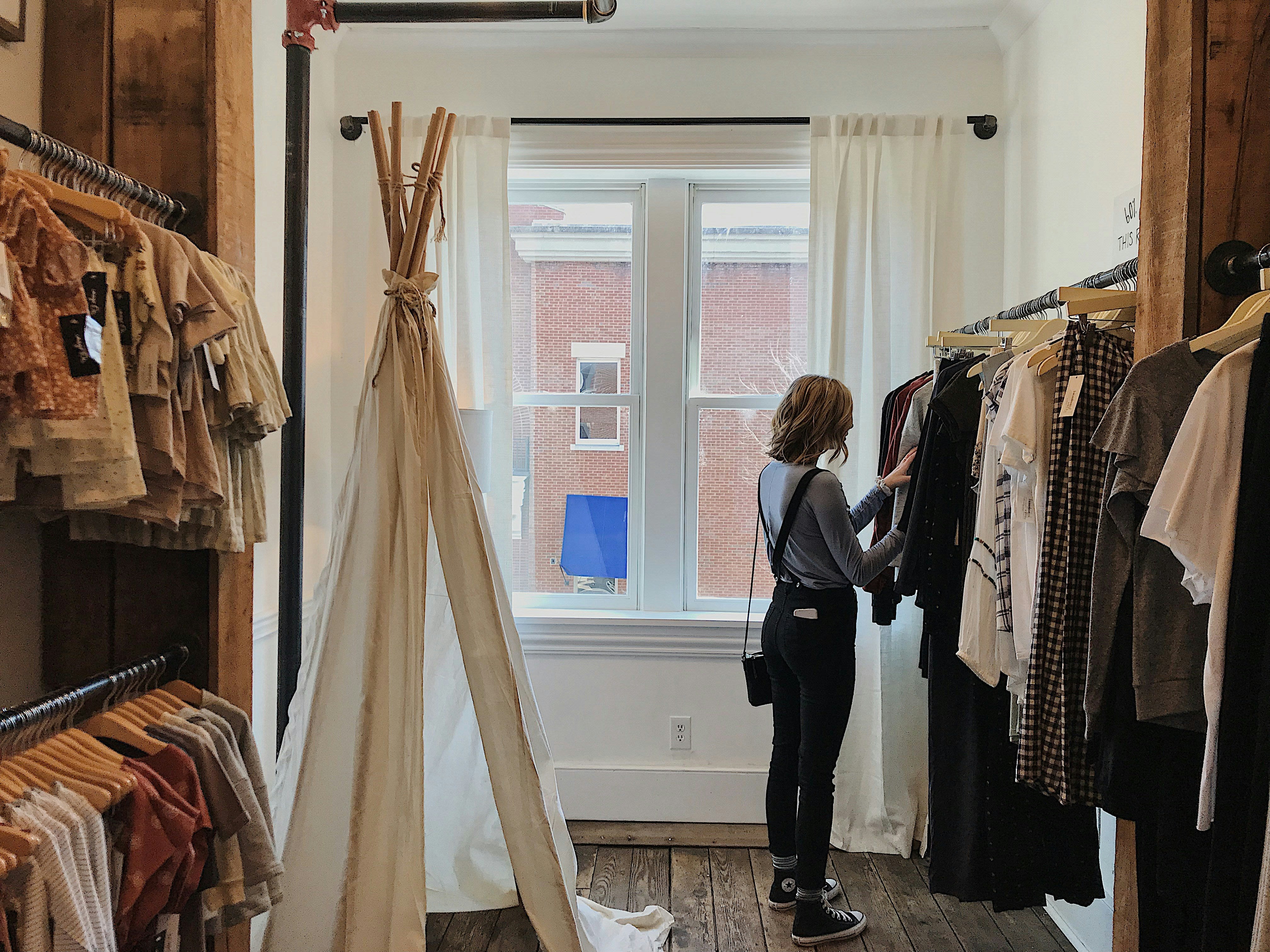Last week's news about developments in the textile and clothing industry in Europe was certainly negative:
First, the bankruptcy of the Swedish company Renewcell, probably the largest and most important company in Europe that converted used clothing back into natural fibres. The owners, including clothing giant H&M, were no longer able to secure the company's financing due to poor sales figures. Among the company's customers is the Upper Austrian fibre group Lenzing. Lenzing is also struggling with poor sales figures. A sad day for the development of a sustainable textile and clothing industry in Europe.
A majority could not be found in the European Parliament in favour of the supply chain law, which had long since been negotiated. Before the first attempt, the vote was postponed, but on the second attempt, the vote was held. A majority in favour of the law, which would have put large companies in a position to take responsibility for their global supply chains, could not be found.
The fact that in the same week the Austrian media also reported on the unbelievable quantities being sent to Europe and the USA by Chinese online retailers Shein and Temu using cargo planes only added to the bad news. The two online giants require the full capacity of over 100 Boeing 777-sized cargo planes every day, and customs checks are being undermined by the shipment of small parcels.
It really is time for some good news on the textile front
So today I'm going to report some good news. Even if there is bad news, there is plenty of good news: different things and information about clothing have really impressed me in the same week. It should also be mentioned that you don't have to travel far for good news from the textile world. Many ingenious things are happening practically on our doorstep.
Research and publications from the Vienna University of Technology
Last week, I had an exciting conversation with a young scientist at the TU, more precisely at the Institute of Process Engineering, Environmental Engineering and Technical Biosciences. DI Wolfgang Ipsmiller is a chemist. He really impressed me at the beginning of November when he gave a really informative presentation on the current state of research and technology at a seminar organised by the WKO (Austrian Chamber of Commerce) on textile recycling management. In his presentation, he summarised in a simple and easy-to-understand way much of what I usually have to research from a wide variety of sources. Studying the footnotes and literature references in his presentation then led me to publications that were full of valuable data and scientific findings. The conversation I now had with Mr Ipsmiller was at least as exciting and informative. I was impressed by how intensively the Vienna University of Technology is involved in the research and (further) development of various recycling technologies in the textile sector. The conversation was interesting in that processes in the recycling of natural and synthetic fibres that are still considered impossible today can be solved in the future through research and development. These topics include the separation of dyes and the fact that the separation of mixed fibres is technically feasible. However, the conversation also made me realise that the necessary research is actually happening - here in Vienna at the Technical University on the Getreidemarkt.
A start-up that wants to revolutionise the world of sewing - founded in Vienna
Robotics has not yet reached the textile and clothing industry. While in other industries, such as the automotive industry, production without robotics is no longer conceivable, manual labour still predominates in the clothing industry. The Viennese start-up "Silana" wants to change this and has set itself the goal of making clothing production fully automated in the future. The first milestone achieved was the robot-controlled, fully automated production of T-shirts. With this achievement, the three young founders from Vienna have succeeded in finding international funding for their project. The "Silanas" are currently in the USA, working from New York to press ahead with further developments and, above all, further financing. The idea and the achievements of these three clothing and automation enthusiasts are a real ray of hope for me. Automation with robotic arms can massively change the production of clothing and make the goal I have repeatedly propagated of only producing clothing when the order has already been triggered and the demand demonstrably exists a reality. This concept of "on demand production" could help to curb the current global overproduction. I very much hope that we will soon be hearing and reading about Silana's next milestones.
Second-hand shopping becomes attractive
The Carla pop-up store on Mariahilfer Strasse is a real success story. It opened a year ago and was supposed to be open for three months. It has now been open for a whole year and is proving extremely popular. Until recently, second-hand shopping had a rather dubious reputation. Not so long ago, you had to rummage around in the far corners of unattractive Caritas warehouses or other organisations in Austria to get hold of reasonably attractive second-hand clothing. Similar to the trendy districts in Berlin or London, you can now buy second-hand clothing on Vienna's Mariahilfer Strasse in an environment that is attractive, clean and friendly. This is so important because the reuse of existing clothing is the first and absolutely most important step towards a functioning circular economy. The circular economy is about optimising the use of resources for as long as possible. The reuse of clothing that has already been produced comes first. That's why this development is so positive, and it's happening here in Vienna.
A book tip - Rethink Mode, by Franziska Fulvio and Britta John
At the end of my call for positive thinking, I would like to introduce a book. "Rethink Mode" fascinated me. It's a book you should have at home. The two authors explain in a very relaxed and likeable way how we should all deal with the topic of fashion. Above all, it's a book that makes you think. You learn many different facets of a possible sustainable approach to clothing, from care and repair to sensible passing on. A clear reading recommendation from me and a book that makes me realise that fashion doesn't always have to be problematic, but can be absolutely fun if approached correctly.


